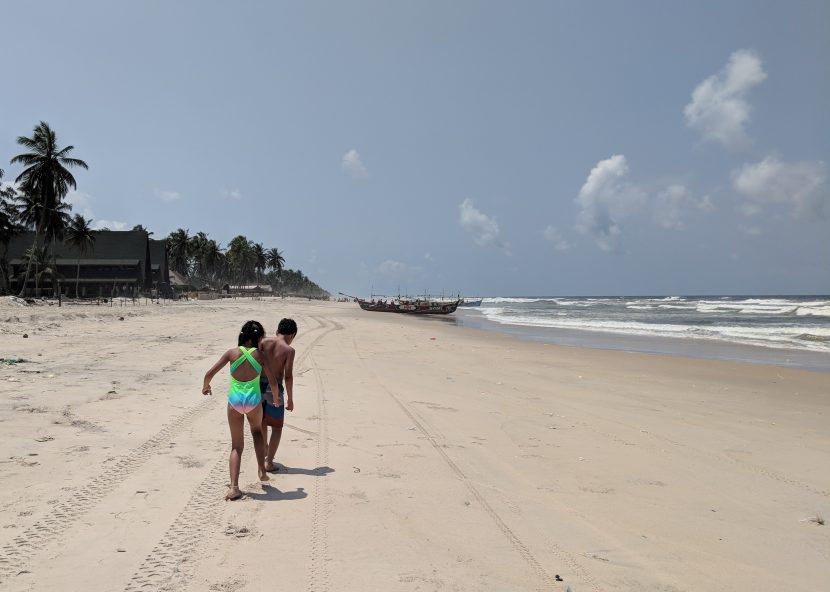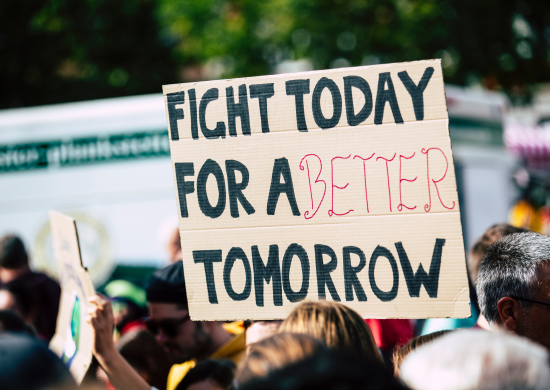In the year since I joined the Pisces Foundation to lead its Climate and Energy Program, the impacts of our changing climate have been in the news more than ever. And the headlines are sobering. Commitments nations have made to date to reduce emissions fall short of what we need to meet goals set in the Paris Agreement. Stories about what the world will look like if temperature change exceeds 1.5 degrees C have left me worried and sad.
I grew up in Abidjan, a coastal city in West Africa, which is threatened by sea level rise and has limited means to prepare and adapt. I spent time this past summer with my children visiting fishing towns along the coast of Côte d’Ivoire so that we could share memories of beautiful places that are the backdrop of my childhood – and where the current way of life may disappear before they grow up. I now live in California, where wildfires are increasingly frequent, intense, and devastating. These effects of climate change that have seemed decades away are realities for our families and communities today.

Recognizing these realities, many colleagues and partners have asked me how I stay motivated to work on mitigating climate change. I always answer, without hesitation, that I see hope every day. The organizations Pisces Foundation has the privilege to support are making a difference and delivering progress toward a different future. And even during this past year of sobering headlines, we’ve witnessed important wins: policy changes resulted in tremendous progress toward reducing super pollutants – which, pound for pound, are more potent than CO2 and increase the rate of climate change. Mexico and Canada implemented rules to fix methane leaks. Brazil updated its emission standards to equip every new diesel truck and bus in the coming years with a filter that reduces over 90 percent of black carbon emissions. States in the U.S. are mitigating the impact of HFCs on the climate. And for each of these policies, there are civil society organizations effectively educating policymakers about costs and benefits and insisting that decision makers act boldly to tackle super pollutant emissions. These positive changes around the world are reasons for me to have hope.
And people are reinforcing this feeling of hope. Cristiano Façanha, the Brazil lead at the International Council on Clean Transportation said he sees “first-hand how evidence-based research can be effective in convening government and civil society behind policies with enormous climate and health benefits.” Sarah Smith, who leads super pollutant work at the Clean Air Task Force believes in what’s possible, and it’s personal. “I don’t want my little boy and his generation left with an irreversibly changed climate and the horrible heat waves, droughts, and other devastating impacts that would come with it. Fortunately, we still have time to act,” she said.
I see courage and commitment in these changes and attitudes, and they all give me hope. At Pisces, we are focused on accelerating efforts to reduce super pollutants. We support concrete opportunities to reduce HFCs, methane, and black carbon. We see opportunities for nations to further their commitments to the Paris Agreement over the next year. We express the importance of reducing super pollutants, because doing so would significantly increase our chances of capping temperature change at 1.5 degrees – and likely preventing 2.4 million premature deaths annually by 2030.
I’m confident in the work of my colleagues at Pisces and our partners around the world, and I thank them for giving me hope – not just for better headlines to come but for the safer, more stable climate and healthier, more vibrant communities we will all enjoy.



